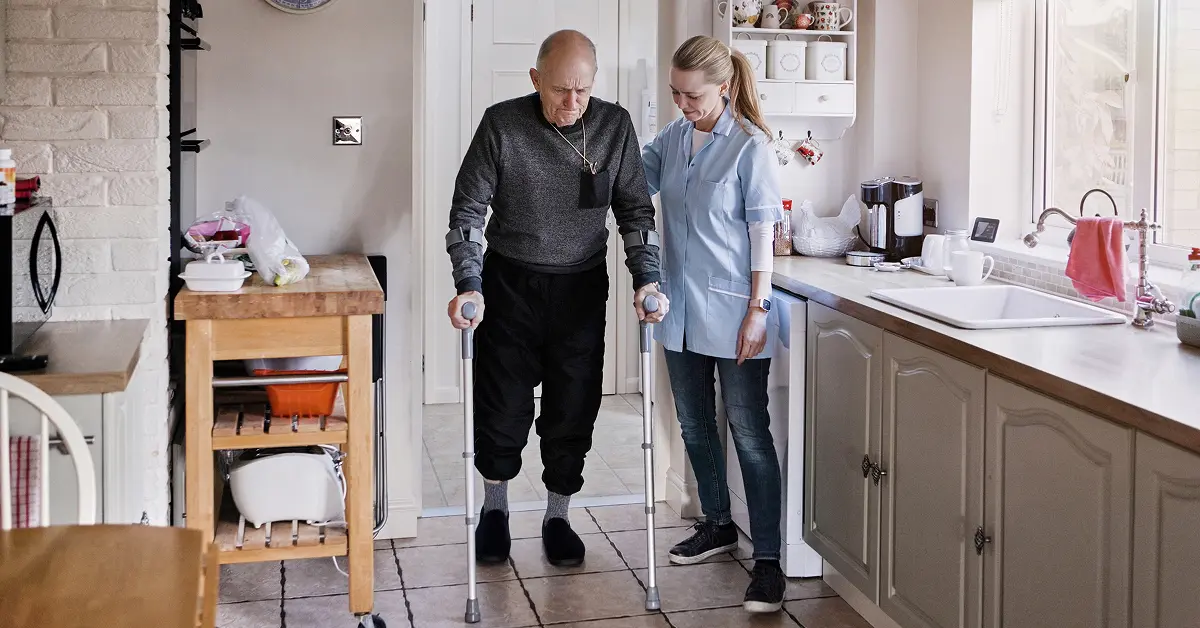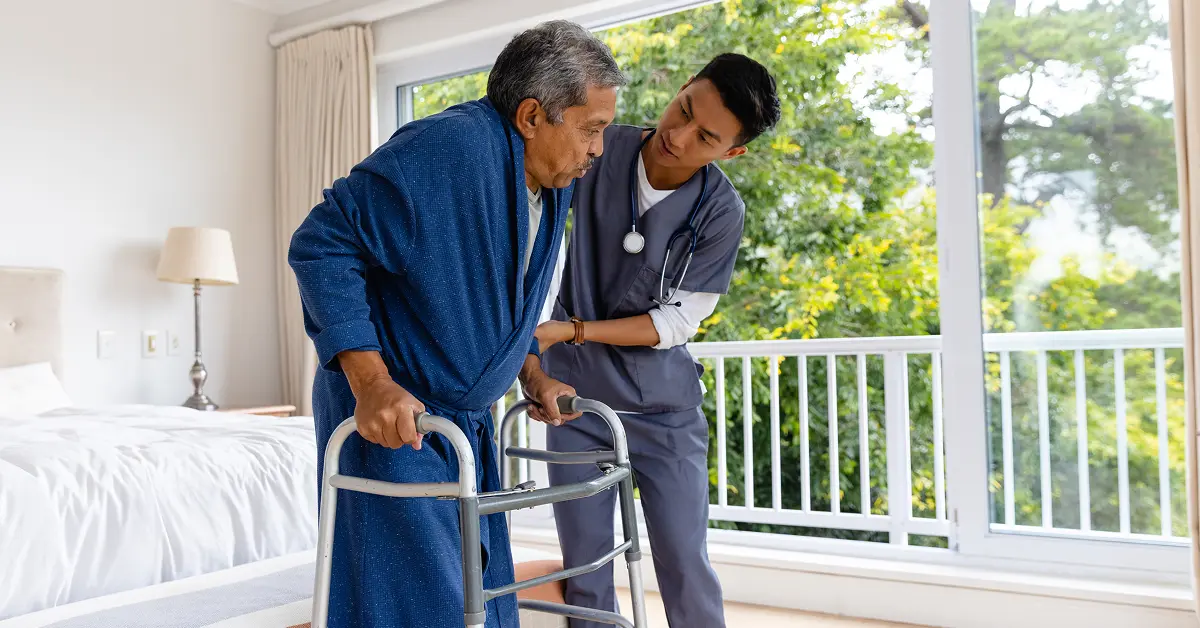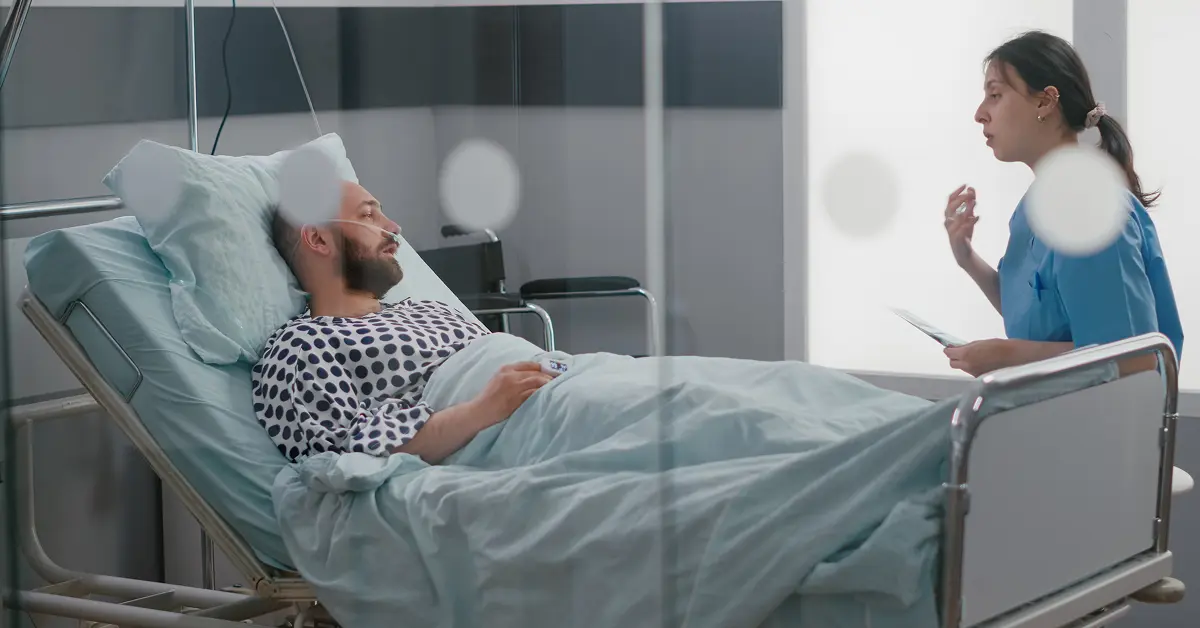Hospital discharge is often a moment of relief, especially after a major illness, surgery, or injury. However, the journey to full recovery continues long after the patient leaves the hospital. In India, where family members are deeply involved in caregiving, understanding post-Hospital Discharge is crucial for the patient’s health, safety, and emotional well-being.
Let’s break down what families in India must know to provide the right support and create a safe, nurturing home environment for their recovering loved one.
Why Post-Discharge Care Matters
Discharge does not mean the patient is fully healed. In many cases, they still need assistance with daily activities, medication management, wound care, therapy, and follow-up consultations. Any lapse in care during this critical phase can lead to relapse, readmission, or complications.
In India, the lack of formal rehabilitation centres and reliance on family care makes it even more important for households to plan properly.
Key Components of Post‑Discharge Home Care

Detailed Discharge Planning
Before leaving the hospital, families should insist on a discharge summary that includes:
- Diagnosis and treatment summary
- Medication list with dosages and timings
- Follow-up appointments
- Diet recommendations
- Physiotherapy or occupational therapy guidelines
- Red-flag symptoms that indicate emergency
In India, many hospitals provide only a brief summary, so don’t hesitate to ask the doctor or nurse for verbal instructions and clarifications.
Skilled Caregiver Support
Depending on the patient's condition, hiring a trained nurse or caregiver can make a huge difference. Professional caregivers are skilled in:
- Monitoring vitals (BP, sugar, etc.)
- Wound dressing
- Medication administration
- Mobility assistance
- Hygiene and toileting support
In cities like Mumbai, Delhi, Hyderabad, and Bangalore, several home healthcare agencies offer verified and experienced caregivers on a daily or live-in basis.
Home Setup and Equipment
Ensure your home is prepared for the patient’s comfort and safety. Common adjustments include:
- Hospital bed or adjustable bed
- Anti-slip mats in bathrooms
- Wheelchair or walker, if needed
- Oxygen concentrator, nebulizer, or suction machine (if prescribed)
- Emergency bell or alarm system
Families often overlook these essentials, which can lead to discomfort and delayed recovery.
Nutrition and Hydration
Post-discharge nutrition is critical, especially in elderly or post-surgical patients. A dietician’s input is ideal for building a meal plan based on:
- Protein requirements
- Restricted salt or sugar intake
- Liquid or soft diets
- Supplements
Home-cooked Indian meals can be easily tailored to meet these needs. Focus on balanced meals with the right timing and portion size.
Medication Management
Missed or incorrect medication doses can cause serious setbacks. Use the following methods to ensure compliance:
- Pill organizers (weekly or monthly)
- Alarms and reminders on smartphones
- Caregiver checklists
- Cross-checking prescriptions with the pharmacist
Watch for side effects or drug interactions, and keep a record of any adverse reactions to inform doctors during follow-ups.
Monitoring and Reporting
Caregivers or family members must keep track of the patient’s:
- Pain levels
- Blood pressure, glucose, pulse
- Sleep and appetite
- Mood or mental state
- Wound or surgical site
Create a daily care logbook to share updates with doctors or visiting nurses. This is especially important for stroke, cardiac, or orthopedic patients.
Mental and Emotional Support
Recovery isn’t just physical. Many patients feel anxious, depressed, or isolated after being discharged. Family support can include:
- Talking regularly and offering reassurance
- Encouraging hobbies or light activities
- Video calls with relatives or friends
- Spiritual practices like prayer or meditation
In some cases, you might consider tele-counselling or home visits from a psychologist.
Physiotherapy and Rehabilitation
For conditions like fractures, paralysis, or post-surgery recovery, regular physiotherapy is essential. Many Indian families skip this due to time or cost constraints, leading to long-term immobility.
You can opt for:
- In-home physiotherapy visits
- Virtual physiotherapy sessions
- Guided self-exercises
Stick to the prescribed schedule and track improvements.
Preventing Readmission
Common causes of hospital readmissions in India include infections, falls, improper medication, and poor follow-up. To avoid this:
- Maintain hygiene in the patient’s room
- Ensure correct handwashing by all caregivers
- Use proper wound care protocols
- Follow the doctor’s schedule for tests or scans
Immediate reporting of concerning symptoms (like breathlessness, dizziness, or high fever) is crucial.
Financial Planning
Post-discharge care can strain household finances. Costs may include:
- Caregiver salary
- Equipment rental or purchase
- Medicine and lab tests
- Doctor or therapist home visits
Check if your health insurance policy covers home care. Some Indian insurers now offer post-hospitalization benefits or reimbursements for home nursing.
Final Thoughts
Post-discharge home care is not just a duty—it’s a bridge to complete healing. With India's family-centric culture, many loved ones are willing to help but may lack training or resources. The key lies in preparation, delegation, and education.
Whether your loved one is recovering from surgery, stroke, or a chronic illness, treating the home like an extension of the hospital—with empathy and structure—can significantly improve outcomes.
Bonus Tip: When to Call for Help
Contact the doctor or rush to a hospital if the patient shows:
- Shortness of breath
- High fever
- Unconsciousness or confusion
- Heavy bleeding from wound sites
- Chest pain or extreme weakness
Keeping emergency numbers handy and arranging transport in advance can save lives.
Conclusion
Post-discharge care at home is a crucial phase in any patient's journey. Indian families can empower themselves with the right information, hire trained support when needed, and follow medical advice closely. With compassion and proper planning, you can ensure your loved one recovers in a safe, peaceful, and loving home environment.
Contents
Our 24*7 services
Latest Posts
- What Is Respite Care and Why Is It Important
- Affordable home care for senior citizens in India
- Caring for Seniors with Dementia or Alzheimer's at Home
- Senior Caregiving A Guide for Every Family
- How to Write a Caregiver Resume That Gets You Hired
- How Care After Hospital Discharge Speeds Up Recovery at Home
- How to Get Home Health Care for Seniors Through Medicare
- What Does a Senior Citizen Caregiver Really Do at Home
- How to Care for Elderly Parents with Alzheimer’s or Dementia
- How to Get 24-Hour Care for Seniors at Home



